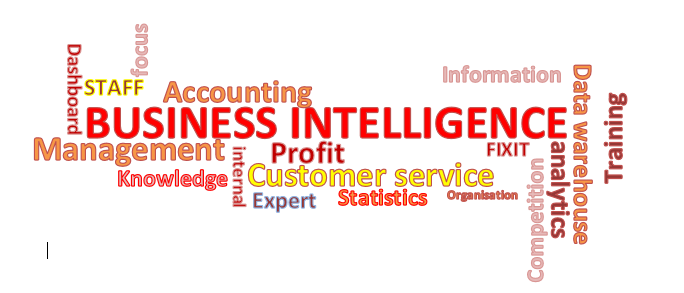
When I was much younger, the term business intelligence evoked images of industrial espionage which usually contained a Mission Impossible type scene.
My vision could not have been further from the truth.
Business Intelligence is a complex subject and this blog entry will hardly do it justice, however, we will try and scratch the surface and cover a few basic points. Enough to get you started, but some way off being expert advice.
Business Intelligence is usually more about inward rather than outward looking; however, this may differ depending on the business type or the applicable industry. We will have a brief look at both of these views and look at some strategies that could be used to improve your current business intelligence processes.
Business Intelligence is the process where information is gathered and stored, for retrieval that can be used to track and monitor the current business and assist in predicting future industry trends and business direction.
Sources of information
Business related information can be obtained from a number of sources. Some are created as a result of internal activities, some data is externally sourced, some data needs to be interpreted, and some data is available to anyone who wants it.
If your accounts are not computerised, then you are missing out on valuable current and historical data. An up to date computerised accounting system can provide detailed information about current cash flow, business profitability, cyclical expenditure events, etc. The best part of this information is that it is siloed to your organisation only. This information is valuable and needs to be protected.
Chances are that a body represents your industry and produces trend and direction data, as well as act as an effective lobby group. Lobbying might be performed to maintain or alter internal rules and regulations, as well as promote opportunities in other states/countries.
The Australian Bureau of Statistics exists only to gather information and make this information available to whoever wants it. Very few of us use this information.
Information organisation
Collecting information is fine, but it is a total waste of time if it cannot be retrieved when required or analysed correctly. There are certainly some risks associated with incomplete data.
Accounting data, if computerised, is usually structured so that it can be easily interpreted and used. Depending on the package integration is can give you a real-time view of your business progress.
Other data that you may collect could include information about business processes (Why we do THIS), or training data (How to put THIS together), or competitor information (How are they doing THIS), or interpretive data – if area demographics show high new building starts data, would it be prudent for the plant nursery to advertise in this area?
Besides collecting data and organising it into appropriate categories, you also need to determine what access level your staff need to have to this data and what sort of update privileges should they have.
Your junior sales staff probably do not need to see your current Chart of Accounts, your Training Manager needs to be able to Create, Update, and Delete training material, but your line manager only needs to have Read access privileges to it.
External data
Sometimes verifying the completeness of external data may introduce risks that need to be managed. It is rare to have access to interpreted data and the source data that was used to create the analysis. The risk is how confident are you with the interpretive skills of the author. If in doubt, collect similar analysis from different authors for the same data and see if there is a correlation.
External data could also consist of competitors advertising and promotion cycles. Overtime you will see a pattern emerging and this pattern is what you will be able to use to pre-empt a competitor promotion.
Governments love collecting information and love even more handing it out. Significant industry related information can be gathered by trawling through public records. Publicly listed companies will always post their P&L with the ASX. Could be an interesting read to see how your main competitor is performing.
Industry directions
There are few (if any) industries that are not represented by a lobby group or some other self-interest organisation. These groups may be industry funded (membership) or offered as a government based service.
These groups exist to train members, shape future directions, and to announce new trends and markets. The information gathered and distributed by these organisations epitomises the business intelligence model. It would be foolish not to avail yourself to this data.






